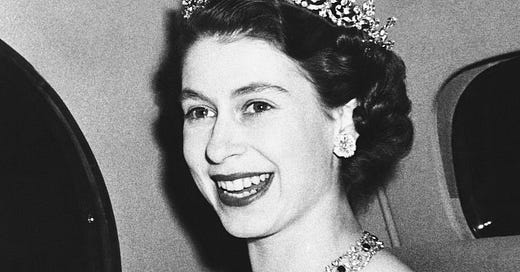Elizabeth II: From the British Empire to the Disunited Kingdom.
She leaves the throne to Charles III who should take up multiple challenges.
The fortieth British sovereign after William the Conqueror, Elizabeth II has just passed away at the age of 96 after 70 years of reign. Since her accession to the throne in 1952, she was the demanding and knowledgeable interlocutor of fifteen prime ministers, from Winston Churchill to Liz Truss.
Even when she was not in power, Elizabeth II was the essenc…
Keep reading with a 7-day free trial
Subscribe to Sylvain Saurel’s Newsletter to keep reading this post and get 7 days of free access to the full post archives.




